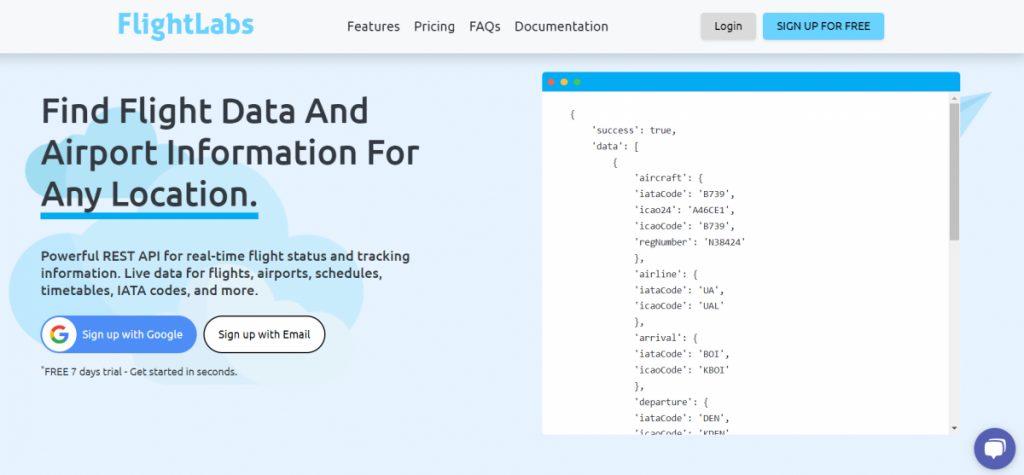In the world of aviation, ICAO (International Civil Aviation Organization) codes play a crucial role in identifying airports, airlines, and aircraft. These codes are standardized and used globally to ensure efficient and accurate communication within the aviation industry. To facilitate the retrieval of ICAO codes, various APIs (Application Programming Interfaces) have been developed. In this article, we will delve into the details of how the ICAO Codes API works and its significance for aviation professionals.
What is an API?

Before we delve into the specifics of the ICAO Codes API, let’s first understand what an API is. An API, or Application Programming Interface, is a set of rules and protocols that allows different software applications to communicate and interact with each other. APIs enable developers to access certain functionalities or data from a service or platform without needing to understand the underlying technology.
ICAO Codes and their Importance
ICAO codes are four-letter alphanumeric codes assigned to airports, airlines, and aircraft by the International Civil Aviation Organization. These codes are used extensively in air traffic control, flight planning, and airline operations. They provide a standardized way of identifying airports, airlines, and aircraft globally, ensuring smooth and efficient communication between different stakeholders in the aviation industry.
Understanding the ICAO Codes API
The ICAO Codes API is a web-based service that allows developers to retrieve ICAO codes programmatically. It provides a simple and efficient way to access the vast database of ICAO codes without the need for manual lookup or data entry. The API can be integrated into various applications, websites, or systems to automate processes and enhance the accuracy of information retrieval.
API Key
To access the ICAO Codes API, developers typically need an API key. The API key acts as a unique identifier and authentication mechanism to ensure secure access to the API. It helps track usage, manage access privileges, and prevent unauthorized usage of the API.
Retrieving Airport ICAO Codes
One of the primary functions of the ICAO Codes API is to retrieve airport ICAO codes. With the API, developers can query the database using various parameters such as airport name, city, country, or IATA code. The API will return the corresponding ICAO code(s) for the given input, allowing developers to easily obtain the required information programmatically.
Retrieving Airline ICAO Codes
In addition to airports, the ICAO Codes API also provides functionality to retrieve airline ICAO codes. Developers can query the API using parameters such as airline name or IATA code to obtain the corresponding ICAO code(s). This feature is particularly useful for airline-related applications, flight planning systems, or aviation websites that require accurate and up-to-date airline information.
Retrieving Aircraft ICAO Codes
Another valuable feature of the ICAO Codes API is the ability to retrieve aircraft ICAO codes. By querying the API with parameters such as aircraft manufacturer or model, developers can obtain the corresponding ICAO code(s) associated with the aircraft. This functionality proves beneficial for aircraft tracking systems, flight simulators, or aviation enthusiasts seeking detailed information about specific aircraft.
Integration and Implementation
The ICAO Codes API can be seamlessly integrated into various software applications, websites, or systems. Developers can make HTTP requests to the API endpoint, passing the required parameters and API key for authentication. The API will respond with the requested data in a structured format such as JSON (JavaScript Object Notation) or XML (eXtensible Markup Language), allowing developers to parse and utilize the retrieved information in their applications.
Benefits of Using the ICAO Codes API
The ICAO Codes API offers several benefits for aviation professionals and developers:
- Automation and Efficiency: By integrating the API into their systems, aviation professionals can automate the retrieval of ICAO codes, eliminating the need for manual lookup or data entry. This saves time, reduces errors, and enhances overall efficiency.
- Accurate and Up-to-Date Information: The ICAO Codes API provides access to a comprehensive and regularly updated database of ICAO codes. This ensures that aviation professionals have access to the most accurate and up-to-date information, improving the reliability of their applications or systems.
- Standardization and Interoperability: The API follows standardized protocols and formats, ensuring compatibility and interoperability with various programming languages and platforms. This allows developers to seamlessly integrate the API into their existing systems without major modifications or compatibility issues.
- Cost-Effectiveness: Instead of investing resources in developing and maintaining an in-house database of ICAO codes, aviation professionals can leverage the ICAO Codes API, which offers a cost-effective solution. The API provider takes care of the data management, updates, and infrastructure, allowing organizations to focus on their core competencies.
To make use of it, you must first:

- Go to GoFlightLabs API and simply click on the button “Sign-Up” to start using the tool.
- After signing up in GoFlightLabs API, you’ll be able to use Free Trial.
Read more: Best ip geolocation api tips to use it
Conclusion
In conclusion, the ICAO Codes API provides a valuable service for aviation professionals, developers, and enthusiasts. It simplifies the retrieval of ICAO codes by offering a standardized, automated, and efficient solution. By integrating the API into their systems, aviation professionals can enhance their applications, improve accuracy, and streamline their operations. The ICAO Codes APIs is a testament to the power of APIs in facilitating seamless communication and data retrieval in the aviation industry.

